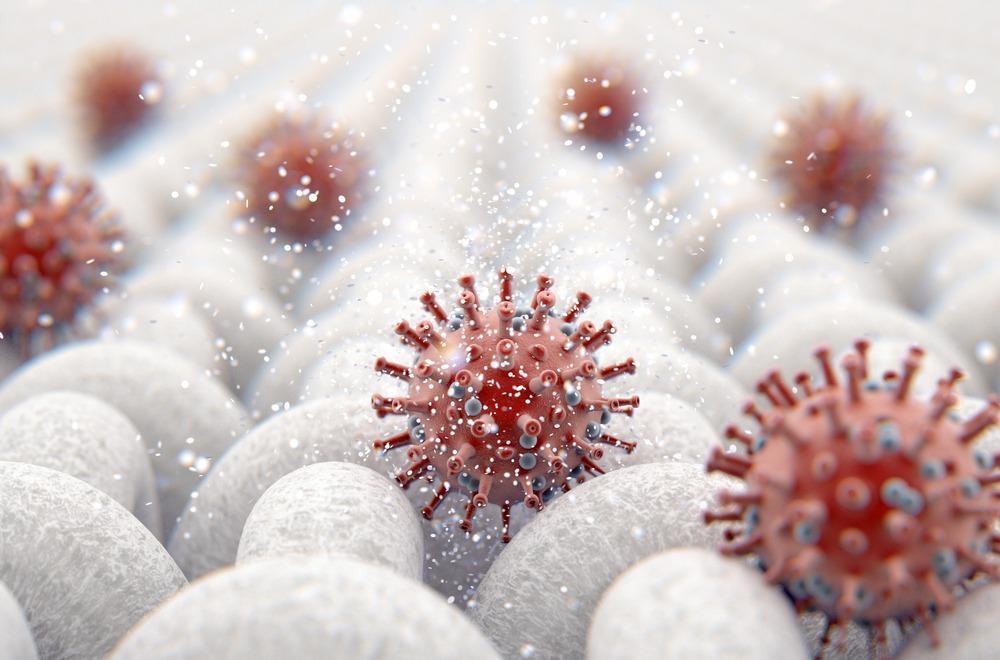
Image Credit: Inked Pixels/Shutterstock.com
While scientists are still learning the multiple factors that impact the transmission of the COVID-19 virus and its manifestation, one thing that is agreed upon is that airborne transmission presents a significant route to infection. Water droplets, expelled by breathing, coughing, and talking, have been proven to linger in the air for hours, remaining infectious and accumulating in closed environments.
A person may contract the virus via airborne transmission even when the infected person has left the space. Therefore, the development of strategies to clean the air or protect people from breathing in these particles is vital to curbing the spread of COVID-19.
When the virus was first recognized back in 2019, scientists rapidly communicated the importance of face coverings in preventing the airborne transmission of the virus. Since then, face masks have become commonplace in societies worldwide.
Not all face masks share the same efficacy at preventing transmission of the COVID-19 virus. Research has demonstrated that different designs, fabrics, and even the mask's age can impact how effective it is at filtering virus-laden particles. The most commonly used air filtration systems effectively capture larger particles, but not the small water droplets that threaten to carry the virus.
Electrospun air filters with tiny pore size
A team of scientists from The George Washington University, Washington, the University of California, California, and the United States Naval Academy, Maryland, has developed electrospun air filters capable of filtering out ultra-small particles due to the fabric's microscopic pores. Compared to surgical and cloth masks, the electrospun air filters have significantly smaller pores (hundreds of microns in size versus just a couple of microns).
This development has applications in personal protective equipment and the indoor environment and is expected to be vital to reducing the transmission of COVID-19.
In a paper published this month, the researchers describe how they tested their new material's efficacy at filtering out the aerosols generated by a strain of coronavirus. Their results showed that the electrospun air filters outperformed most commercial face masks at filtering out these particles, trapping up to 99.9% of coronavirus aerosols. These findings demonstrate the potential for using this new material in masks and filters.
The team also used the electrospun air filters to demonstrate that NaCl aerosols (which are typically used worldwide in filtration tests) behaved similarly to coronavirus aerosols, confirming their suitability as a surrogate for coronavirus aerosols in future filtration efficacy tests. This reduces the need for the use of infectious particles. This will help scientists further to develop filtration systems with higher levels of efficacy.
Enhanced filters could help reduce pandemic restrictions
Overall, the US team believes that its study results will be vital to furthering the development of effective new filters and strategies for preventing the airborne transmission of SARS-CoV-2.
As countries continue to struggle to curb the virus’s spread more than one year on since the outbreak began, developments such as this will prove essential to allowing governments to reduce the harsh restrictions threatening to cause lasting damage to economies and mental health.
*Important Notice
medRxiv publishes preliminary scientific reports that are not peer-reviewed and, therefore, should not be regarded as conclusive, guide clinical practice/health-related behavior, or treated as established information.
Journal Reference:
Wang, H. et al. (2020) Development of Electrospun Nanofibrous Filters for Controlling Coronavirus Aerosols. medRxiv preprint. doi: https://doi.org/10.1101/2020.12.30.20249046
Disclaimer: The views expressed here are those of the author expressed in their private capacity and do not necessarily represent the views of AZoM.com Limited T/A AZoNetwork the owner and operator of this website. This disclaimer forms part of the Terms and conditions of use of this website.